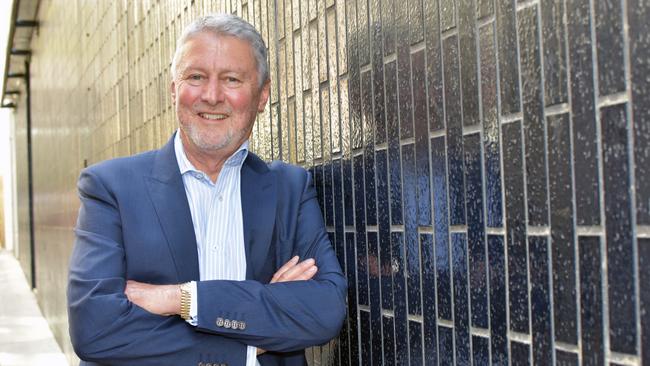Money stresses to spike: how to handle rising cost pressures
Aussies’ finances faced a tough 2022 and the new year looks similarly stressful, but experts say there are ways to handle the hardships.
National
Don't miss out on the headlines from National. Followed categories will be added to My News.
Stress levels are set to soar in households as the financial squeeze tightens amid higher interest rates, energy bills and food costs, and wages not keeping up with inflation.
Big hits in 2023 are expected from electricity prices surging and about one-quarter of households with mortgages facing a sudden repayment jump of 40 per cent as the cheap fixed-rate loans they took out in recent years come to an end.
Money coach Karen Eley says people cannot keep up with rising day-to-day expenses and are giving up spending on things that bring them happiness.
“People are working more hours, or harder for an income that isn’t keeping pace with current cost rises and some are feeling like they’re going backwards,” she says.
“There will be thousands coming off fixed rate loans and I’ve had a lot of discussions with clients around how they are already stretched with rising living costs.”
Affording the home loan repayment spike stresses many, while non-homeowners worry about rent rises and leases not being renewed, Eley says.
STRESS-RELIEF TECHNIQUES
“Our nervous systems have been overloaded during the past few years and our bodies are not designed for continuous stressors,” she says.
There are ways to cope, and Eley suggests mindfulness techniques, which do not cost money but can create calm that stops small financial stresses overwhelming people.

“Techniques like meditation, gratitude for what do have rather than what is causing anxiety, regular deep breathing and walks in nature all slow down our nervous system and stress levels,” she says.
Eley says other ways to handle money stress include:
• Using apps to become more engaged with money and track and review expenses.
• Setting financial goals and planning cashflow over six to 12 months.
• Being proactive by contacting bill and loan providers to discuss hardship arrangements.
• If facing a fixed-rate mortgage rise, start paying more now to condition yourself, or build a financial buffer.
Research group Canstar’s recent Consumer Pulse Report found 30 per cent of Australians feel they are probably spending more than they earn.
“The proportion of people living beyond their means has crept up since 2020 when just 19 per cent of Australians felt they were stretched beyond their means and is now even higher than it was in pre-Covid 2019 when 26 per cent felt they were living beyond their financial means,” the report says.
Canstar also found more Australians are carrying debt outside their mortgage – 39 per cent versus 28 per cent in 2020. Credit cards and buy now pay later loans are the most common form of personal debt, but money owed has dropped sharply to $13,312 per person.
BIGGEST PAIN POINTS
Rising grocery prices are the biggest source of financial stress for 2023, followed by rents, energy, home loan and fuel costs, it found.
Canstar group executive of financial services Steve Mickenbecker says only 7 per cent of grocery shoppers are saving money by seeking discounts, cutting waste and buying other brands, and “these people are showing the way”.
“Bigger bills have the best potential for bigger savings,” he says.
“Find lower quotes for car, home and health insurances, and look for more cost-effective electricity, phone and broadband plans.”
Mickenbecker suggests starting a budget that tracks your spending and shows areas that should be concentrated on, then “attacking one of these areas every two weeks”.

MBA Financial Strategists director Darren James says more stress looms because of the fixed-rate jump.
“The expectation is these people will come off 1.5-to-2 per cent rates and fall into a 6 per cent interest rate,” he says.
James says rising energy costs will also hit hard, and people need to look at their spending and write it down in a budget.
“You can’t measure what you don’t see,” he says.
“If there’s financial stress you need to take stock of what your budget is. Get an understanding of what it is looking like, and what are the areas you can cut back on.
“Prioritise your goals. Is an overseas trip the priority at the moment or do you push it back a little until there is some clear air? This difficult period will pass.”
HOW AUSSIES HAVE CUT ENERGY COSTS
• Switched off lights frequently 72%
• Turned off appliances at the wall 54%
• Washed clothes in cold water 52%
• Reduced shower times 46%
• Reduced dryer usage 37%
• Used utility rebates and concessions 33%
Source: Canstar Consumer Pulse Report
More Coverage
Originally published as Money stresses to spike: how to handle rising cost pressures





